Fine Motor Skills Normal Geometry Worksheets for 7-Year-Olds
5 filtered results
-
From - To
Explore our engaging Fine Motor Skills Normal Geometry Worksheets designed specifically for 7-year-olds! These interactive worksheets not only introduce basic geometric concepts but also enhance fine motor skills through fun activities. Children will enjoy tracing shapes, cutting and pasting various geometric figures, and coloring intricate designs. Each activity promotes precision and hand-eye coordination, essential for developing writing and other crucial skills. Perfect for classroom use or home practice, our worksheets provide a delightful way to integrate art and math learning. Join us in nurturing young learners’ creativity while strengthening their fine motor abilities with exciting geometry challenges!
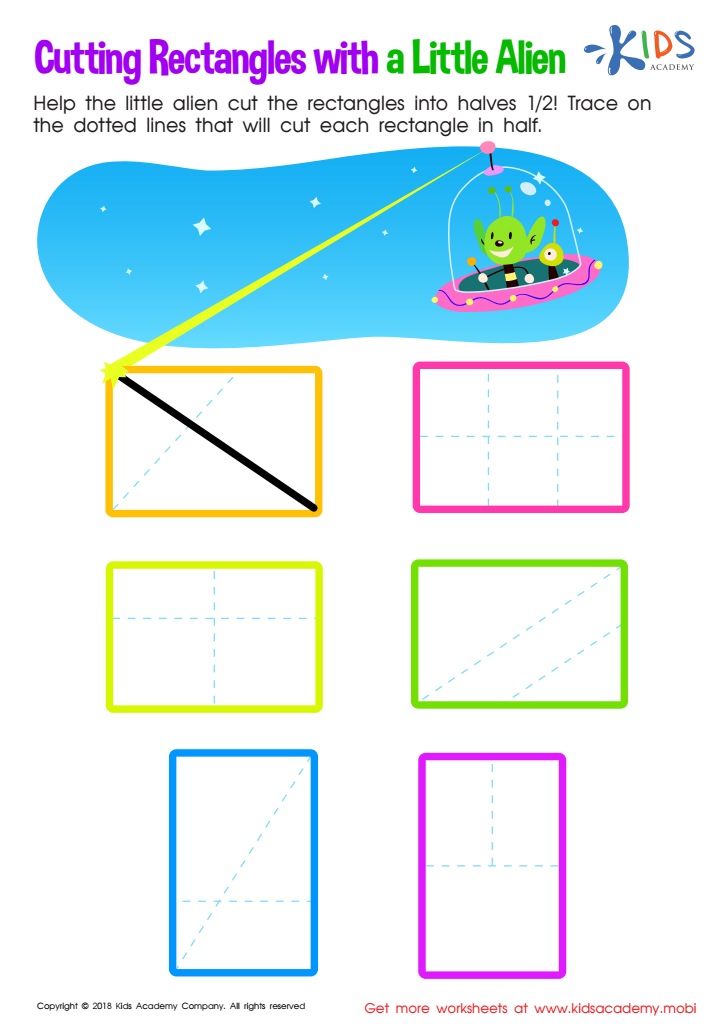

Cutting Rectangles with Alien Worksheet
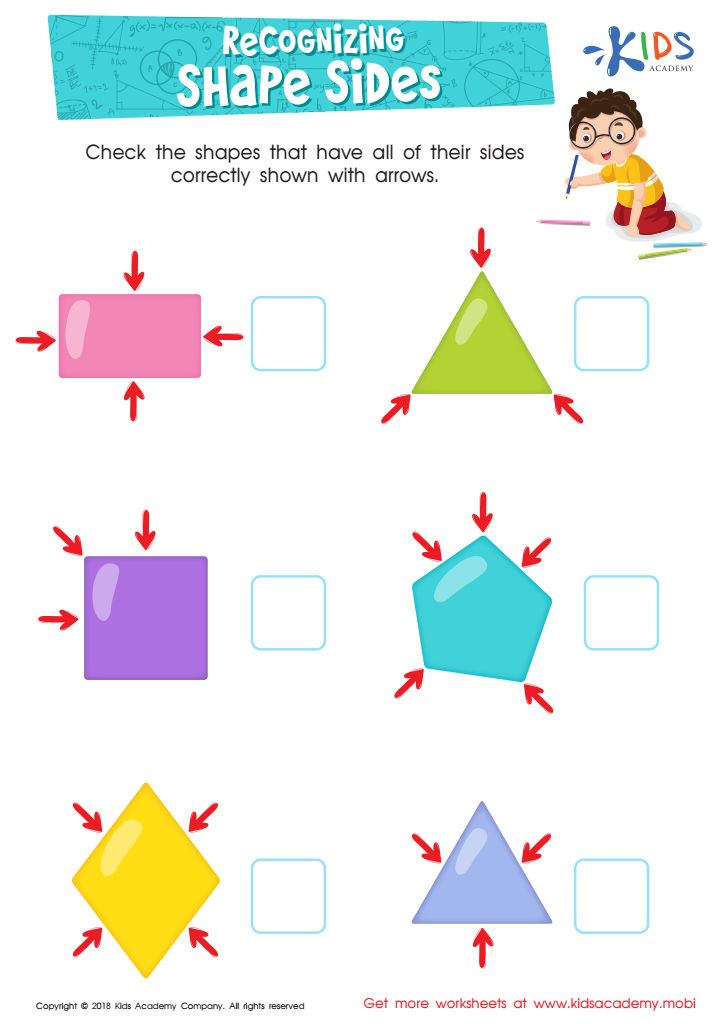

Recognizing Shape Sides Worksheet
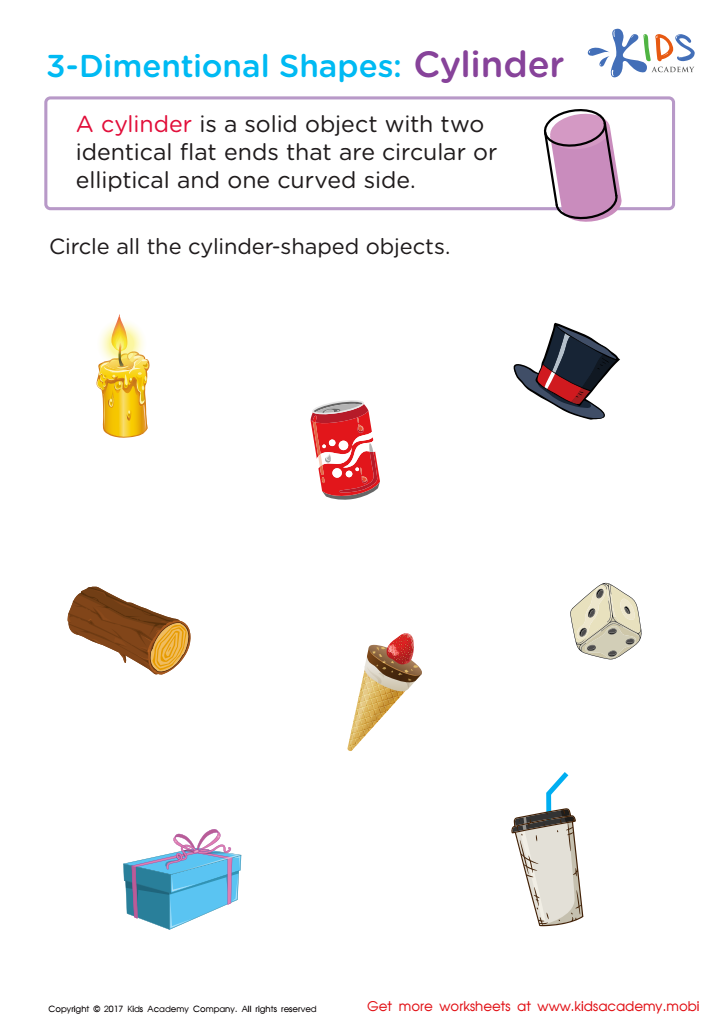

Three–Dimensional Shapes: Cylinder Worksheet
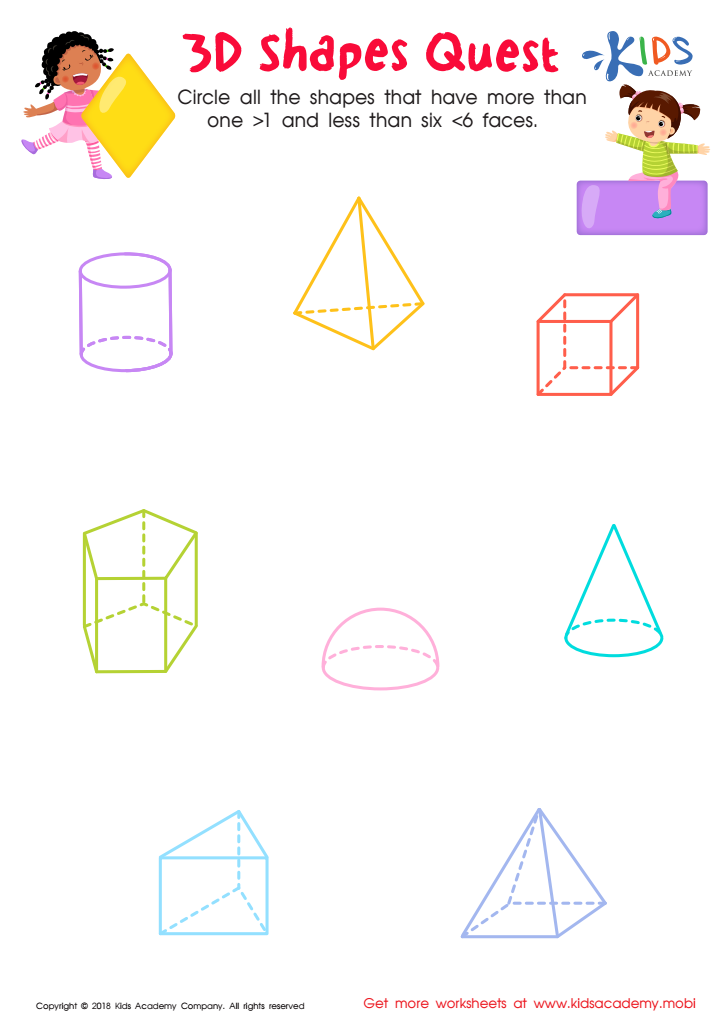

3D Shapes Quest Worksheet
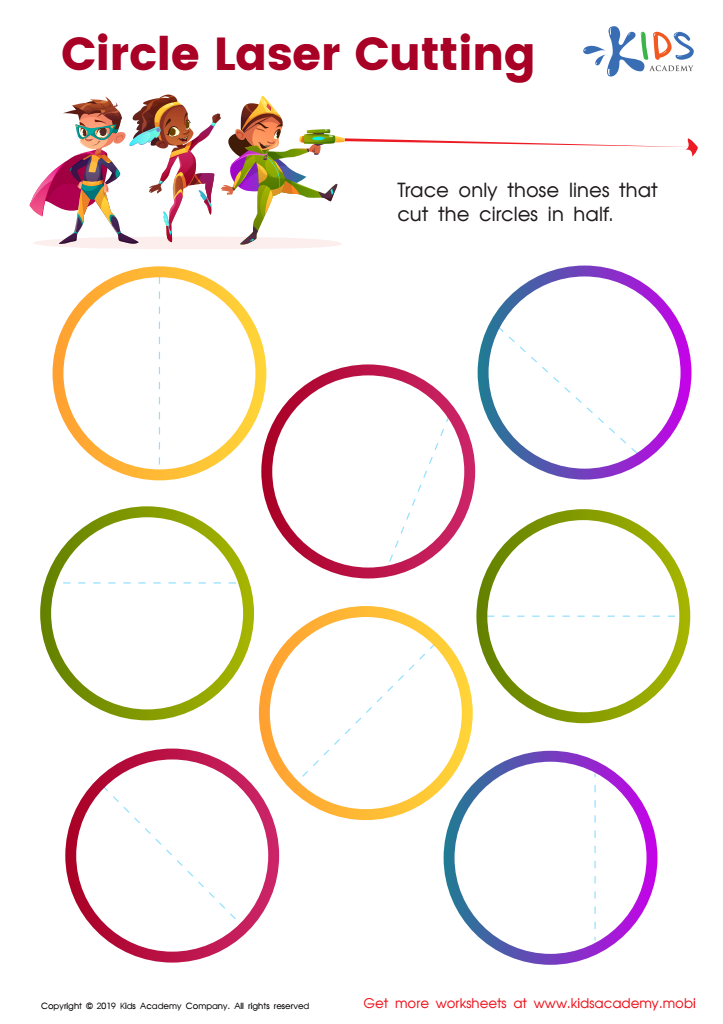

Circle Laser Cutting Worksheet
Fine motor skills are crucial for 7-year-olds, influencing their ability to perform daily tasks, engage in academic activities, and achieve greater independence. At this age, children are refining the small muscles in their hands and fingers, which are essential for activities such as writing, drawing, and manipulating objects. When parents and teachers focus on developing these skills, they significantly enhance a child's ability to grasp pencils correctly, cut with scissors, and tie shoelaces.
In terms of geometry learning, fine motor skills play a vital role. As children learn to understand shapes, patterns, and spatial relationships, having strong fine motor skills empowers them to successfully engage in geometrical activities like drawing shapes, building with blocks, or using geometric tools. This engagement aids in the comprehension of abstract ideas via tangible experiences.
Additionally, investing time in activities that foster fine motor development—such as arts and crafts, puzzles, and construction play—can lead to enhanced concentration, confidence, and problem-solving abilities. In summary, supporting the development of fine motor skills not only cultivates a child’s geometric understanding but also lays the groundwork for academic success, self-sufficiency, and overall cognitive development.
 Assign to My Students
Assign to My Students































